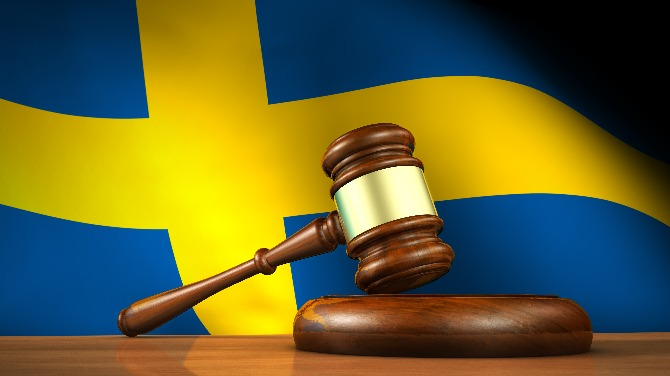Brazil’s Betting Market Faces Uncertainty as Parliamentary Inquiry Examines Tax Liabilities
- Flexi Group
- Mar 13
- 4 min read
The parliamentary inquiry into Brazil’s nascent betting regulatory framework has begun its hearings, with lawmakers seeking clarity on how tax liabilities will be handled. The one certainty so far is that tax obligations remain unresolved.

As the first quarter of the newly regulated Brazilian betting market concludes, the country’s fiscal policies regarding the industry remain in flux. The week of March 11 saw the first meeting of the Parliamentary Inquiry Commission of the Bets regime (CPI Bets), with a primary focus on addressing the taxation framework for operators and players.
The commission called upon Robinson Sakiyama Barreirinhas, the Special Secretary of Receita Federal, Brazil’s Federal Revenue Service (FRS), to provide an update on how tax obligations are being coordinated under the new regime. The current betting regulatory framework was sanctioned on January 1, 2025, under Law No. 14,790/2023, imposing a 12% tax on gross gaming revenue (GGR) for licensed operators and a 15% tax on player winnings exceeding BRL 2,824 (approximately €530), as established by President Lula da Silva.
Secretary Barreirinhas adopted a cautious stance when discussing the progress of tax collection since the launch of the betting market, noting that a “clear picture” would emerge in six months. Receita Federal has assigned a dedicated team to analyze company-submitted data on tax payments. Looking back at the years prior to regulation, Barreirinhas estimated that lost tax revenues from unregulated online gambling between 2018 and 2024 could total BRL 3 billion (€3.3 million). However, he emphasized that Receita Federal would confirm the exact amount. “Since 2025, Receita Federal now has what it didn’t have until now — basic information about the operations of these companies in Brazil,” Barreirinhas stated.
One of the most contentious issues raised during the hearing was whether retroactive taxes should be applied to operators that were active in Brazil before the regulatory framework was implemented. Barreirinhas stated unequivocally: “In my opinion, those who were physically present in the country, materially or informally, are accountable to the Brazilian tax authorities.” However, enforcing retroactive taxation on foreign operators that previously catered to Brazilian players without regulatory oversight remains a challenge. To address this, Barreirinhas suggested legislative changes that would hold accountable the financial agents and service providers that facilitated transactions with unlicensed operators.
To further solidify Receita Federal’s authority, Barreirinhas proposed that Congress enact a new law specifically dedicated to the taxation of gambling, distinct from the existing Bets regime. A key point of contention remains how Brazilian players should pay the 15% income tax on winnings exceeding BRL 2,824. Receita Federal has recommended that licensed operators withhold the tax at the source—similar to the system used for lottery winnings. However, Congress rejected this proposal, insisting that bettors should be responsible for reporting and paying their gambling taxes through their annual Personal Income Tax (IRPF) filings. Barreirinhas expressed concern over this decision, noting, “Receita Federal expressed its position, but Congress did not foresee withholding player tax at the source. Withholding income tax should not be about revenue collection, but rather to discourage gambling by making bettors reconsider their betting habits.”
The uncertainty surrounding taxation in Brazil’s betting market has been closely monitored by Ana Helena Pamplona, lawyer and partner at Ana Helena Karnas Hoefel Pamplona Advocacia. Speaking to SBC Noticias Brazil, Pamplona highlighted the industry’s divided opinions on how best to structure tax obligations. “The success of the regulated market is closely tied to the effectiveness of its tax regime,” Pamplona stated. She warned that excessive taxation on operators and players could drive them towards unregulated markets, defeating the purpose of legalizing and structuring the industry. “High tax rates imposed on both operators and players need to be carefully balanced to avoid negative consequences. Excessive taxation could push players toward the unregulated market, which would defeat the purpose of establishing a structured legal framework,” she explained.
Pamplona also emphasized the need for greater clarity on the 12% GGR tax, questioning its legal classification: “The first step should be to define the legal status of this contribution. If it is considered a public fee, the regulatory approach would be different from that of a conventional tax. Clarity on this point would help operators comply with their obligations and avoid legal disputes.” Adding to the complexity, Brazil is currently managing two overlapping tax systems (CBS and IBS) until 2033, further complicating compliance for betting operators. “This overlapping period creates a complex environment where operators are unsure which rules apply. This uncertainty needs to be resolved to build trust and stability in the market,” Pamplona noted.
Pamplona believes that 2025 and 2026 will be crucial years in defining the future of Brazil’s betting industry. Clear legal definitions and streamlined tax policies will be necessary to prevent disputes and ensure compliance. On the issue of taxing player winnings, Pamplona supports Receita Federal’s stance that withholding tax at the source would be the most efficient and transparent method. However, she acknowledged that political resistance to this measure could delay its implementation. “Withholding tax at the source is standard practice in other markets, especially for lottery prizes. Applying the same rule to betting winnings would simplify the process and reduce the risk of tax evasion. However, political considerations might prevent this from happening anytime soon,” she concluded.
The broader sentiment within the industry echoes Pamplona’s concerns. While Brazil’s regulated betting market holds enormous potential, its success depends on establishing a stable and predictable tax framework. “The real challenge is finding a balance between securing government revenue, supporting industry growth, and managing player behavior responsibly. Overregulation or excessive taxation could drive players to unregulated markets, while underregulation risks undermining public trust and government income,” Pamplona stated. As the CPI Bets inquiry continues, all eyes will be on lawmakers to determine whether Brazil’s betting industry can strike this crucial balance in the months ahead.
By fLEXI tEAM
.png)
.png)







Comments